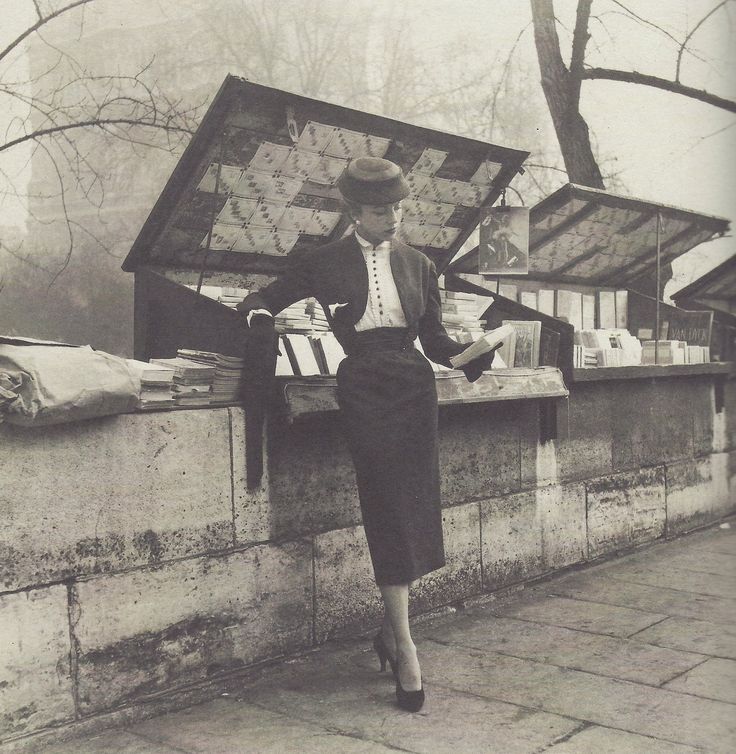« January 2017 | Main | March 2017 »
February 24, 2017
Jack London on Inspiration.
You can't wait for inspiration. You have to go after it with a club.
--Jack London (1876-1916)

John Griffith "Jack" London in 1905
Posted by JD Hull at 04:29 AM | Comments (0)
February 21, 2017
Trump in Florida on Saturday.
Donald John Tump certainly has some rough edges. A proven salesman, he still exaggerates too much for even a POTUS. He gets things wrong. He name-calls almost daily. Sure, some days I wish he were classier. But on Saturday President Trump in Melbourne, Florida gave one of best speeches you'll ever see or hear a pol give. And, technically, of course, he's a political novice. One month in office and already back into campaign style. But--for him--it worked. He hit every policy and cultural issue of his controversial 4-week presidency. Hostile news coverage. Fake news. Jobs. Replacing Obamacare. Defeating ISIS. Sanctuary cities. Trump is just learning how to develop his gift for for politics. Like him or not, the guy's a natural. And smart. If you can't court the press, go back to your base. And I think he knows at this point that disgruntled Democrats, the Left and Main Stream Media are pushing people over to him. Folks--including me--used to worship NBC, CBS, CNN and ABC. No more. Or not as much. Right now, as much as I hate to admit it, right-leaning Fox News seems "fair and balanced" compared to the spastically partisan coverage by the other big news outlets. I'm watching Fox most evenings now for the first time--because the other media outlets are openly losing it. Everyone, from coastal elites to average American families, are beginning to have second thoughts about news institutions we watched, followed and wanted to trust since the 1950s. Trump can be flaky, loopy, mean and ugly. But we're starting to see some ugly colors and cries for help in the Fourth Estate, too.
Posted by JD Hull at 06:29 PM | Comments (0)
February 19, 2017
39 Things Long-Divorced American Lawyers Know

Paris 1952: Willy Maywald, Mannequin en tailleur quai Saint-Michel.
1. Never swive anyone named Zoe, Brigit or Natasha.
2. Let no one leave anything at your house.
3. Don't buy cheap shoes.
4. Shoe trees. Cedar. The most expensive.
5. Sorry. The Havard Bluebook is always important.
6. British women don't really like British men
7. Have a coworker in same room if you interview someone.
8. Completely legal interviews are not very informative.
9. Don't jump to hire law grads with blue collar backgrounds. Some think they've arrived and are done.
10. Women make better associate lawyers.
11. On documents Rules 34 and 45 do different things. Know what.
12. If you travel, cats not dogs.
13. Very attractive women think they're ugly.
14. Very attractive men are delusional.
15. Irish, Welsh, Finnish and Afro-American women are totally and forever in charge. They are heroes.
16. A disproportionate number of Irish people are drunks.
17. A disproportionate number of Irish people are verbally and lyrically gifted.
18. Jewish doctors do not get Irish, English or German drunks. Have a cookie instead?
19. Jews and Italians are the best drinkers. They have rules. They have the genes.
20. The Jews really are it. Consistently awesome and world-changing tribe for 2500 years.
21. Well-dressed Russian women are cheap, treacherous and insane.
_-_The_Cardsharps_-_Google_Art_Project.jpg)
The Cardsharps, Caravaggio, c. 1594
22. Most lawyers dislike being lawyers. It shows.
23. Lawyers are less well-rounded every decade.
24. Super-smart and super-nice kids--without lots more--make lousy lawyers.
25. There are at most 35 truly excellent American colleges and universities. It shows when you meet their grads.
27. Parisian men are not as insecure, jealous or violent as other men. Let's just talk about this, Luc, okay?
28. Never be impressed by Phi Beta Kappas.
29. Always be impressed by Marshall scholars, Rhodes scholars and Wesleyan grads.
30. Have at least 4 impeccable suits. They should be expensive but need not be tailored.
31. Don't wear bow ties every day. Almost every day is fine.
32. Cuffs on all long pants except jeans and tuxes. Khaki? Summer only.
33. Twice a month you should dress like a pimp from a New Orleans whorehouse.
34. Saabs can be driven forever. They like to go fast.
35. Know who you are. Learn if you can family history back 8 generations at least.
36. Talk to people on elevators. All of them.
37. Don't do Europe with other Americans.
38. Just 2 cats.
39. Trust no one in Budapest.
Source: 11.25.15
Posted by JD Hull at 12:57 AM | Comments (0)
February 15, 2017
Want Client Service Smarts? Find a Local Store or Restaurant with Lines Out the Door.
Because at those shops and eateries, they are doing something very right. They have either (1) products or food that are excellent or (2) an atmosphere or level of customer/client engagement that is genuine and makes people want to be there over and over again. Sometimes, if rarely, those places have both great products or services and great customer attention. So check for local retail players with lines out the front door. And when you find these places, no matter what business you are in, tell your employees to check out these places and report back to you about what they are seeing. This is not a new idea. It's a common sense and very pedestrian idea. But you can apply local retail successes to any professional services business. But it takes work. A bit of imagination. And all your partners and employees have to be on board. Every single co-worker.


Primanti Brothers in Pittsburgh's Strip District
Posted by JD Hull at 01:16 PM | Comments (0)
February 14, 2017
Philip Klein: The New "Opposition to Wussiness" in American Politics.
In the new weekly magazine edition of the Washington Examiner, managing editor Philip Klein notes--correctly, I think--that Opposition to wussiness is the driving force in US politics. And both liberals and conservatives are leading the charge. Klein begins:
In the increasingly polarized climate of U.S. politics, liberals and conservatives are united on one thing: They hate wussiness, and they think their side is always dominated by a bunch of wusses who aren't willing to be as ruthless as their political opponents. The abhorrence of wussiness has become the driving force in U.S. politics.
During the Obama era, ideologues on both sides who were angry about perceived weakness, transformed politics. An early liberal critique of Obama was that he was too eager to win over bipartisan support for his agenda and to appear to be within the acceptable mainstream, so he watered down policies. In a popular narrative at the time among liberals, the roughly $800 billion economic stimulus package was too small and was weighted too heavily toward tax cuts, and Obama didn't fight hard enough for a public option during the healthcare fight. If only he used the type of strong-armed tactics associated with Lyndon Johnson, many on the left argued, he could have enacted a bolder liberal agenda.
Of course, from the conservative perspective, Obama and Democrats had steamrolled through deeply unpopular policies that grossly expanded the size and scope of government. Fed up with the type of Republicans who they saw as too willing to cut deals with Democrats, the Tea Party was born, and thrusted a wave of new Republicans into office in 2010, who took over the House of Representatives with a promise of fighting Obama's agenda.
Posted by JD Hull at 03:16 AM | Comments (0)
February 13, 2017
Best Monday Startup Song Ever.
1995 Buenos AiresPosted by JD Hull at 12:47 AM | Comments (0)
February 11, 2017
For everyone who wanted to leave Maggie's Farm but never did.
RATM's 2000 version of Bob Dylan's Maggie's Farm, first recorded in January 1965.
I ain't gonna work on Maggie's farm no more
No, I ain't gonna work on Maggie's farm no more
Well, I wake in the morning
Fold my hands and pray for rain
I got a head full of ideas
That are drivin' me insane
It's a shame the way she makes me scrub the floor
I ain't gonna work on Maggie's farm no more
I ain't gonna work for Maggie's brother no more
No, I ain't gonna work for Maggie's brother no more
Well, he hands you a nickel
He hands you a dime
He asks you with a grin
If you're havin' a good time
Then he fines you every time you slam the door
I ain't gonna work for Maggie's brother no more
I ain't gonna work for Maggie's pa no more
No, I ain't gonna work for Maggie's pa no more
Well, he puts his cigar
Out in your face just for kicks
His bedroom window
It is made out of bricks
The National Guard stands around his door
Ah, I ain't gonna work for Maggie's pa no more
I ain't gonna work for Maggie's ma no more
No, I ain't gonna work for Maggie's ma no more
Well, she talks to all the servants
About man and God and law
Everybody says
She's the brains behind Pa
She's sixty eight, but she says she's fifty four
I ain't gonna work for Maggie's ma no more
I ain't gonna work on Maggie's farm no more
No, I ain't gonna work on Maggie's farm no more
Well, I try my best
To be just like I am
But everybody wants you
To be just like them
They sing while you slave and I just get bored
I ain't gonna work on Maggie's farm no more
© Bob Dylan Music Co.
Posted by JD Hull at 07:10 PM | Comments (0)
February 06, 2017
Washington Examiner: "Burning Obama's energy regs."
With the unexpected election of a GOP POTUS, the Washington Examiner--a kind of thinking man's Fox News website and weekly magazine I've read for two years--is jazzed and riding high. And why not? The Examiner is relatively new. Although it started in 2005, in its current form covering just national politics it is barely 4 years old. It is for my money most professional, best-staffed and sanest right-leaning political sheet ever launched. Energy policy is especially well done. This week's magazine features "Trump's Energy Agenda." In one of three pieces devoted to Trump administration's plans for an aggressive energy and environment policy, reporter John Siliciano has one playfully entitled "Trump will burn Obama's energy regulations". Excerpts:
Trump issued his broad America First energy plan on Inauguration Day, highlighting key priorities but without details on how the goals would be reached.
The plan is ambitious, from making the nation energy-independent, to developing clean coal technology and devising an energy-and-terrorism security strategy with the Saudi Arabians.
The new president foresees a $30 billion boost to the economy from repealing strict climate and green regulations, such as the Waters of the U.S. rule, which puts ranchers, energy developers and many others under the thumb of the Environmental Protection Agency.
And then there is the Clean Power Plan, the centerpiece of Obama's climate agenda, criticized for extending EPA authority over the power grid. The Supreme Court stalled the plan a year ago.
Beyond that, Trump wants to boost oil and natural gas production and to exploit vast fossil fuel deposits in America's shale rock. Hydraulic fracturing, or fracking, has made the U.S. the world's biggest energy producer. Trump wants to extend that lead to the point where imports are not needed.
Posted by JD Hull at 05:12 AM | Comments (0)
Confused about my "politics"? It's not important--but....
Not that it's important. But this blog has been active for 12 years. We all change a bit. Anyway, this may make the confusion worse. Comment I made on Facebook on Sunday:
"I'm pretty liberal even though I grew up mainly in IH [GOP Cincinnati suburb], am a serious capitalist, had moderate GOP parents and worked for one GOP member of Congress. I refuse to think off any partisan script. I'm an R who has twice raised $ for and voted for Hillary Clinton--who I see as a moderate & very similar to Trump as a pol. I also worked for a very liberal Kennedy style senator. Ideologies don't solve problems. People do."
Posted by JD Hull at 03:43 AM | Comments (0)
February 02, 2017
John F. Lynch: "Sitting on the Wall." How should outside counsel think about in-house counsel?
The client wants you on that wall looking after his problem and being mindful of his career. If the night is cold and rainy, and if down in the client’s bedchamber the fire is roaring and the best brandy has been opened, you are still to sit on the wall and look for the Hun.
We're lucky that veteran patent litigator John F. Lynch is a regular reader of this blog. Born and educated in Manhattan, John moved to Texas shortly after the New York bar examination, went to work at a relatively large Texas law firm specializing in intellectual property firm, and eventually became a partner in that firm. In later years, John's firm merged with a larger Washington, D.C. firm, where he would be a partner and chair the new firm's IP group. John now lives in the Seattle area.
About ten years ago, the firm asked John to give a talk on lawyering--with an emphasis on developing and keeping business--to his firm's antitrust group at a Florida retreat. He kept a copy of the talk and, last month, sent it to me as his slightly different but complementary take on this blog's 12 Rules of Client Service. We thought his remarks were not only excellent but also took up a notch the quality of this blog's running conversation on building enduring service cultures at corporate law firms.
In the talk, John is addressing this question: exactly how is a General Counsel, in-house lawyer or other executive at a client company likely to view the true role of outside counsel in almost every engagement--and especially in difficult ones? He answers the question in three parts which he denominates as "three rules". So we asked John if we could print all or some of it here. He agreed. Today we're publishing his Florida talk to his old firm--it's entitled "Sitting on the Wall"--in its entirety. Note that except for a few punctuation changes, and my underlining the key sentence in each of three rules John mentioned in his talk that day, we've taken no liberties with the text:
Good afternoon.
I have been asked to speak briefly about my observations about the practice of law, and in particular about developing business: how have I done it and the guidelines that I have pursued in that effort.
At the start, I will observe that the how and why legal business gets gotten is perhaps the most mysterious phenomenon related to the practice of law. Most of us lawyers are Type A personalities which, as a corollary means we are paranoids. We wonder what we’ve done wrong. Why is it that clients will not hire us? What is it out there that is conspiring against our developing a solid client base producing repeat business year after year?
I cannot dispel the paranoia, in fact I encourage it. It’s healthy particularly if it keeps us alert and attentive to our clients’ wants and needs. But when we look at ourselves, we are looking in the wrong place to answer how to develop clients. We have to look at the clients and what they want.
From a perspective that is at least long, I can offer overarching counsel that you develop clients and client loyalty by doing what I call “sitting on the wall.” It’s kind of a parable, but I’ve never been able to explain it better than “sitting on the wall.” In that parable, the client has invited us to his or her castle for purposes of defending it in one fashion or another, and your message to the client by both words and action is simple, “You go to sleep tonight with your family and do not worry. Even though it’s cold and rainy, I will sit on the wall, and if the Huns come in the dead of night I will pour hot oil on them and drive them away...and I will try not to wake you in the process.”
.jpg)
I wound up with this philosophy about sitting on the wall as a result of making three observations that I call rules about the business of lawyering. As I said, being self centered lawyers as we are it is difficult to begin where we must begin not by looking inside ourselves, but rather by looking inside the individuals from whom we seek employment. Who are these people? What are they looking for? Are they different from us, and if so, how so? These are inquiries into customer needs, customer preferences and customer impressions and these are the core questions that must be made in any service business.
First Rule
And that is what we as lawyers do. We provide a service. So that is the first rule: To recognize and understand that lawyering is a service business. As an individual, you must get out of your head that that you are marketing a product. We are not selling the product of superior legal analysis, or the product of skillful advocacy, or even the product of artful cross-examination or eloquence before a jury. You or your firm will so advertise, but that’s of no consequence.
If you think about it, the typical client is inundated with material about the product offered by law firms, and for the most part he or she probably has concluded that there are a lot of lawyers offering good product.
Now that is not to say that there may not be in this audience a lawyer whose skills in one or another area are so extraordinary, so exceptional, that clients will flock to acquire that product. But even in those instances, I will suggest that greater success could be realized if that extraordinary talent could be repackaged and marketed as a service. And for the overwhelming majority of us, we are selling a service, and we will succeed if our service is good. The essence of service by its very nature means that you are adapting to the client’s needs and desires. You are not requiring the client to adapt to you.
Second Rule
The second rule is to recognize that clients have careers too. It has long been the case that the determination of success or failure may be much more arbitrary for an in-house lawyer or a corporate executive than it is for us as outside counsel in a law firm. After all, we all have the privilege of speaking only about our victories when in the presence of the client, since the client may not be aware of the defeats. But there is no corporate general counsel out there whose entire won-loss record is not known by the CEO who sits over him and who controls his employment. So keep in mind, that the folks who are hiring us are entrusting us with preservation of at least a part of their career. They have a problem of one type or another, and they are putting that problem in our hands for us to solve.
That’s what virtually all lawyering is: problem solving. There is a problem because the client is accused of impinging on the rights of some one else or because that someone else is perceived as intruding somehow on the rights of the client. Sometimes the problem has not yet matured, and the lawyer is asked to assure it does not mature. The client’s commission is: Make the problem go away. Sure, they want to remain informed. Sure, they want to participate. Sure, they want and need a budget that is followed. But the bottom line is that the client gave us a problem to solve, and since we aspire to represent clients in the most difficult and most important cases, what we aspire to is to represent our clients in solving the largest problems that they have. For the individual within the client responsible for hiring us, those are career shaping employments.
It is important that we remain conscious that our employer is not a faceless corporation with a lawsuit or other adversarial contest to win. Our client truly is a lawyer or executive with a career shaping problem to solve. That realization will affect how you deliver your service, and how you work to relieve the inevitable tension that can build during an employment.
Which leads to the third rule.
Third Rule
The third rule is to remain aware that, despite the requests for updates and briefings, in virtually every employment the client is trying to transfer the load that is his problem to you so the problem is no longer a burden, so it no longer inhibits the client’s activity. In short, the client wants you on that wall looking after his problem and being mindful of his career. If the night is cold and rainy, and if down in the client’s bedchamber the fire is roaring and the best brandy has been opened, you are still to sit on the wall and look for the Hun. You may get a visit out there on the wall, and you may even get a hot chocolate, but if you have the client’s ultimate trust you will never be invited into the warm bedchamber while there is a possibility of attack. It’s not ingratitude. It’s simply that you have been entrusted with this job and the job requires sitting on the wall--if you don’t do it someone else will have to. And if that someone else does it and does it well, that someone else will win the client’s trust. Only when the enemy no longer threatens can you leave that post on the wall.
I had a very talented partner who will remain nameless who seemingly had all the tools for success. He was bright, able, eloquent, charming and had an excellent understanding of the law. But if you watched closely around clients, his message was, “You go to sleep tonight with your family and don’t worry. But because it’s raining, I’m going back to my castle to enjoy the fire and perhaps the brandy. But don’t worry. I have a very fast horse, and if the Huns attack, just let me know and I will be here immediately and I will drive them off.” It didn’t sell, and you could see it. That message was communicated indirectly in many ways, but the upshot was that clients were never able to be confident that a problem had been fully offloaded to that lawyer. That lawyer seemed always to impose conditions on the service. There were inconveniences that took precedence over his rendering of service. The product was admittedly good, but the service was lacking.
When you get to the how-to of all of this, I could go on and on, but the take-away is simple. An employment is not about you or about the firm. It is about serving some individuals by solving their problems efficiently as possible. So the hallmarks of a lawyer giving good service are timeliness, reliability, accessibility, and making sure that the best surprise is no surprise, all in the context of a tacit acknowledgement that you as outside counsel are committed to be of service. Also take a genuine interest in the career of the individuals that employ you. Tell them, occasionally in so many words, that you are committed to make them successful. Cultivate a culture of being helpful, of providing assistance. When you are dealing with a corporate client with a corporate law department, become acquainted with those lawyers and encourage them to give you a call not so you can have a client, but so that you can be helpful. For any minor matter and offer to help if they ever need some he, and offer to help on the cuff. As corporate lawyers grow and ascend into positions of responsibility, the parts of their Rolodex that are most precious are the phone numbers of the outside counsel that they can turn to reliably to assume problems from their shoulders and propel their careers. And even if they move across the country, they will continue to call those numbers when the really threatening problems arise.
And that’s what we are in this business for, right? To do the really important stuff and the hard stuff. Lord knows why we want that, but we do, and the way to get there, as far as I can see is by sitting on the wall.
Thanks for the opportunity to speak to you, and I hope your retreat is a dynamite success.
Copyright 2003-2014 John F. Lynch All Rights Reserved.
Posted by JD Hull at 08:08 AM | Comments (0)
February 01, 2017
Want to think like a Client? Great.Then think about controlling Client Costs.
Rule 8 is Think Like the Client--Help Control Costs. The 2006 Explanatory Note for Rule 8--we reluctantly decided that an Advisory Committee Notes regime was a bit grandiose--begins this way:
Ask an associate lawyer or paralegal what a "profit" is. You will get two kinds of answers. Both answers are "correct" but neither of them helps anyone in your firm think like the client. The answers will be something like this. (1) "A profit is money remaining after deducting costs from receipts." This is the correct young transactional/tax lawyer answer. Or (2) "it's money left over at the end of the hunt." This is the correct fire-breathing young litigator answer.
The right answer?
A profit is a reward for being efficient. And until a lawyer, paralegal or staffer gets that, she or he will never know how a client--or a law firm partner--thinks.

Posted by JD Hull at 12:45 AM | Comments (0)